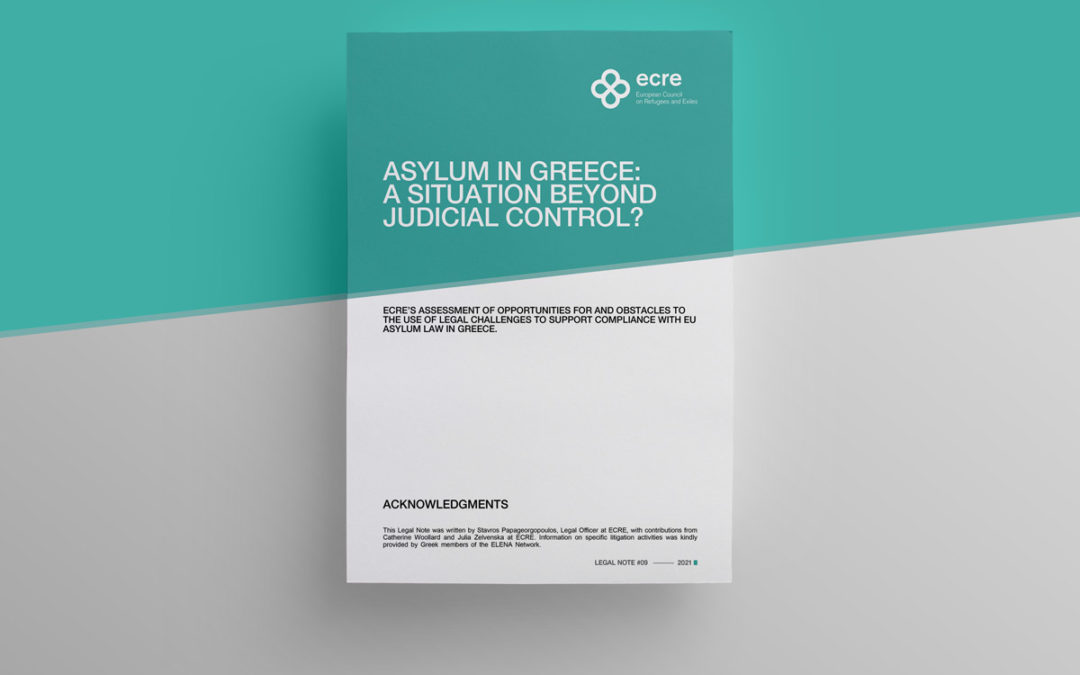The ECRE Legal Note 9 examines judicial engagement in asylum law and policy in Greece and provides an assessment of opportunities for and obstacles to the use of legal challenges to support compliance with EU asylum law in Greece.
The note is divided into three sections: Section II provides brief references to the legal framework and an overview of the EU-Turkey Statement context. Section III discusses in detail four important areas of EU asylum law where there are longstanding problems of implementation in Greece, namely a) asylum procedures, b) unlawful returns, c) detention and d) reception conditions. For each area, the legal concerns are described followed by an analysis of the ongoing, complete or potential legal challenges in domestic litigation, Council of Europe action, EU legal avenues and other international legal avenues. Section IV summarises the main points of the analysis and presents the combination of factors that create a paradox consisting of modest practical results despite extensive action.
The note highlights that, while there have been individual successes against serious violations of the rights of asylum applicants in recent years, wider legal action has failed to stop the systemic flaws in the Greek asylum procedure and reception system. The continued implementation of concerning policies underlines the high level of political commitment to an approach based on deterrence and a disheartening truth regarding the limited impact of much litigation in the face of EU-backed policies. Nevertheless, while the CEAS negotiations are ongoing, litigation is important as an attempt to ensure that rights-based approaches are heard and supported by courts and that jurisprudence influences policy reforms.
Further, the note highlights that domestic litigation in Greece continues to contribute to the protection in practice of asylum applicants, despite the limited resources available. This form of litigation ensures real and, at times, immediate relief from serious human rights violations and, more importantly, it is a significant tool to secure the rule of law by making use of independent judicial bodies and to try and ensure that executive and legislative action remains compliant with domestic, EU and international obligations.
The use of the European Convention on Human Rights has been central in the efforts to check and control the Greek government’s asylum and migration management but it does not come without challenges and setbacks. Although there has been criticism of recent jurisprudence, the ECtHR has established significant principles concerning the reception of asylum applicants and access to asylum. At the EU level, the note highlights that, while the CJEU is not an appropriate mechanism for individual human rights violations, the obligatory but nonetheless neglected preliminary reference procedure can assist is certain circumstances. Similarly, infringement procedures could support compliance, for instance in cases where violations are clearly linked to incorrect transposition or implementation of EU law. Concerted action by the EU would be necessary, however, in order to support compliance including eventually initiating infringement procedures against Greece.
Lastly, the note highlights that, although not always a priority, the engagement of international legal mechanisms could complement and reinforce legal action at all levels.
This article appeared in the ECRE Weekly Bulletin. You can subscribe to the Weekly Bulletin here.

